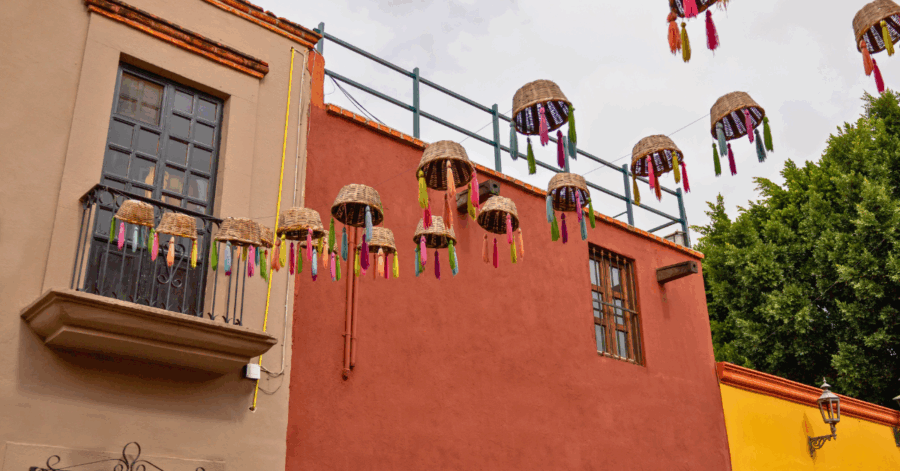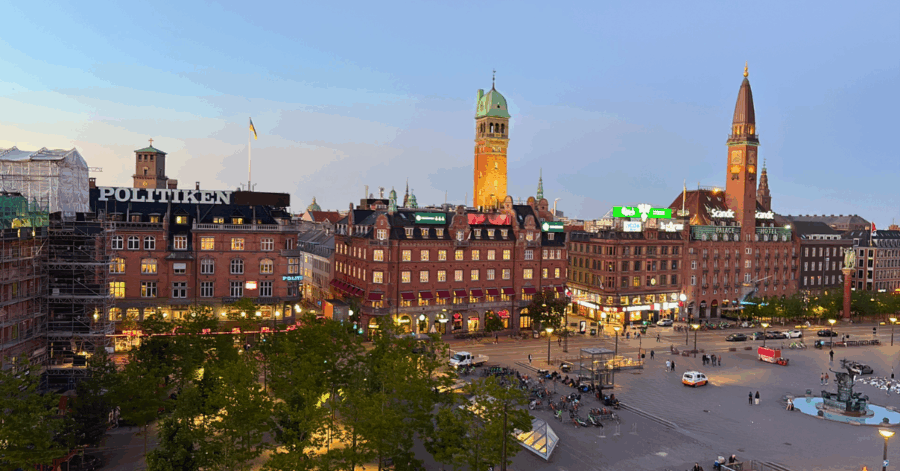So, what is Thanksgiving? This may seem like a strange question, but Thanksgiving, as you know, is a holiday exclusive to the United States the same way July 4 isn’t everyone’s Independence Day. Why does this matter? Well, first of all, you may be asked “So, what is Thanksgiving?” while abroad and it’s your responsibility to explain your own holidays. Second of all, you have the same choice The Clash presented us with back in 1982 when it comes time for the big holidays: should I stay or should I go (home) now?
Holidays are another aspect of studying abroad which can permeate culture and reflect different traditions creating a unique opportunity for study abroad students to experience either new, foreign holidays or even their own holidays in an unfamiliar setting. For example, in Australia, Christmas still falls on December 25; however, this is during the southern hemisphere’s summer, so the concepts of a “White Christmas” and a “Winter Wonderland” are limited to the northern hemisphere. I encourage you to see for yourself the infamous Aussie santa on a jet ski (not an unusual spectacle that time of year down under).
This opportunity to experience new holidays or familiar holidays in an unfamiliar setting, is precisely why my advice to you this week is simple: don’t come home for the holidays. When I was abroad for a year as an exchange student in Freiburg, Germany I didn’t come home once – this helped me realize three important benefits of staying abroad for the holidays.
1) You save time & money! International flights are expensive, and international travel takes time. Depending on where you’re studying abroad, your travel time alone could take an entire day not to mention the time lost battling jet lag. From the time I left my door in Freiburg, Germany until the time I walked into my mother’s house in Houston, Texas I had spent two days on two buses, one train, two planes, and one car. So, a trip home for a holiday may require shaving a day off of that trip at each end of it, effectively making a five-day trip feel more like a three-day trip when you could’ve had five full days to explore your study abroad region, which brings us to my next point.
2) Now that you’ve avoided losing time and money by staying abroad for the holidays, how can you spend that time and money: how about a trip to Rome instead? London? Rio de Janeiro? Bangkok? The money I saved by NOT traveling home for the holidays was used for trips in Europe, and since I was centrally located in Germany this was very convenient. I spent St. Patrick’s Day in Zurich; Thanksgiving in Brighton, England; Christmas in the Swiss alps; and New Year’s Eve in Rome. These trips gave me new memories for these holidays as well as exposed me to the thought of new traditions, a perfect segue into my final point.
3) Cultural exchange is a HUGE part of study abroad, and one of the most interactive ways to participate in a cultural exchange is to experience holidays abroad. I mentioned earlier the Aussie santa on a jet ski, but many different cultures celebrate the same holidays in different ways. For example, in Germany they open gifts on December 24 at night rather than the morning of the 25th. Why? Knowing German, I know that the German word for ‘Christmas’ is die Weihnacht which actually translates directly to Holy Night, referring to the night of the 24th. Furthermore, the Protestant Revolution led to the creation of der Weihnachtsmann (Santa Claus) because they wanted to do away with the Catholic figure Sankt Nikolaus (St. Nick), so Sankt Nikolaus is thought to bring presents on December 6 while der Weihnachtsmann brings presents on die Weihnacht, December 24. Not only was this interesting to learn while in Germany, but I was also able to witness these differences first hand. Something else Germany is famous for in regards to Christmas are die Weihnachtsmärkte (Christmas markets). I’ll be missing these spectacular markets and their Glühwein (hot spiced wine) this winter. Certainly, these are examples of minor holiday differences, but imagine spending Christmas in a country without it such as Japan where Christmas is observed but isn’t a public holiday. These differences allow study abroad students the opportunity to explain their own holidays or how they celebrate them in an interactive cultural exchange.
Well there you have it. That’s my take on staying abroad for the holidays and my top three reasons why you should do just that. So, that is my challenge to you this week; step outside of your comfort zone and experience something familiar somewhere unfamiliar. And as always, leave your take in the comments below if I left anything out or you have ideas for an upcoming blog.
Take care.






